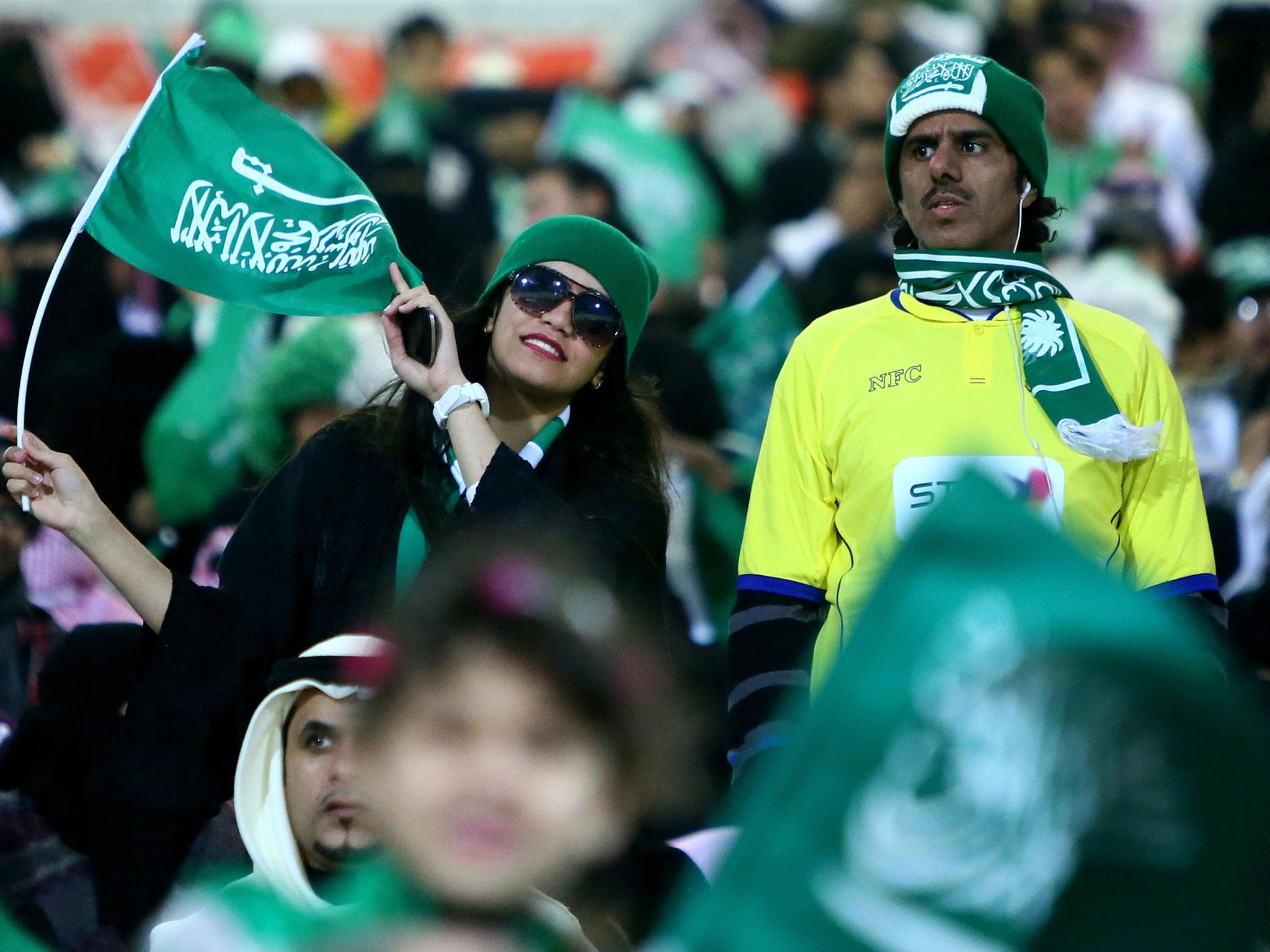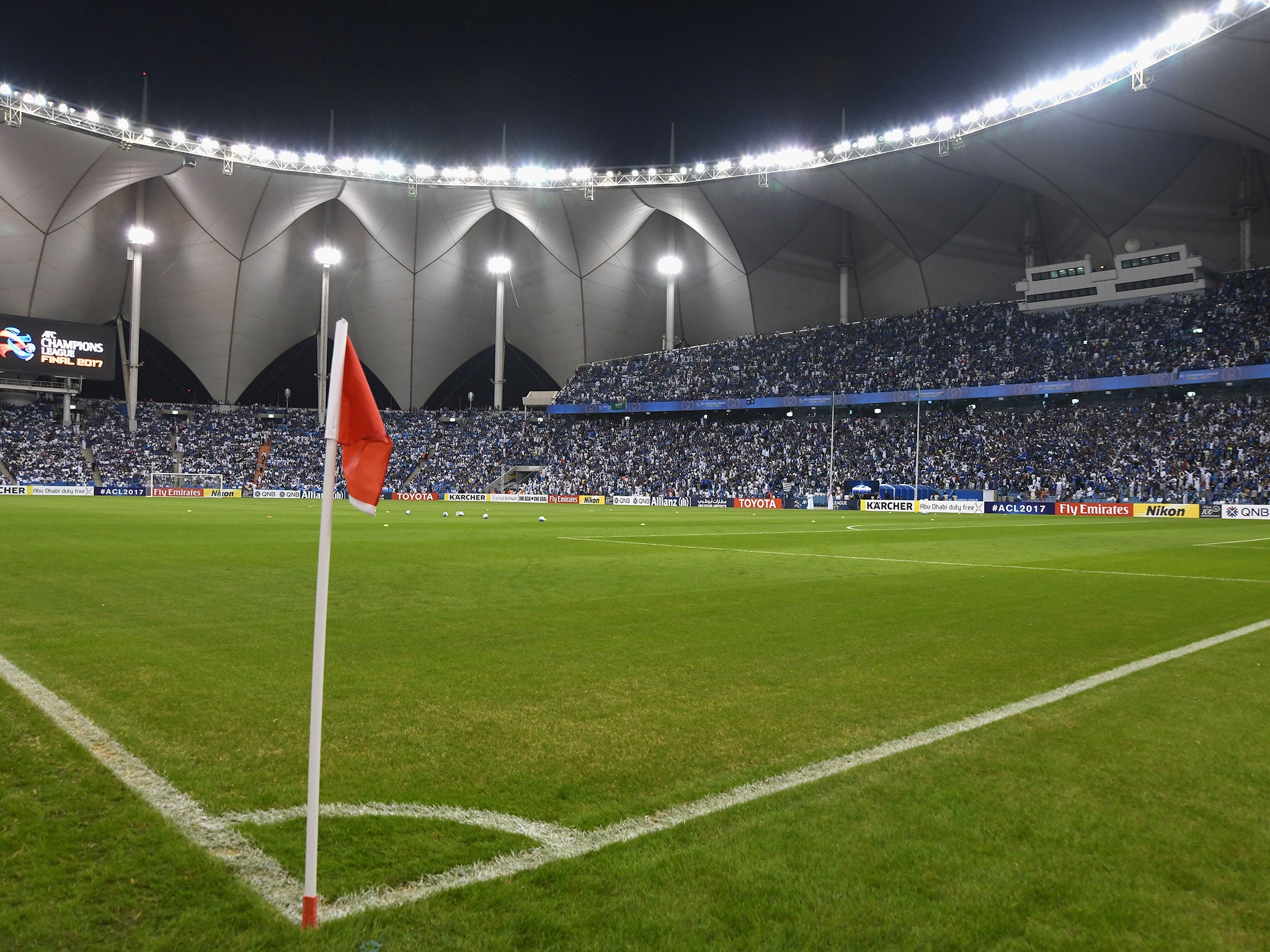Decision to allow Saudi Arabia's women to attend football matches shows progress - but offers no clear end goal
Such faint progress is in stark contrast to the country's appalling human rights record and treatment of women

Your support helps us to tell the story
From reproductive rights to climate change to Big Tech, The Independent is on the ground when the story is developing. Whether it's investigating the financials of Elon Musk's pro-Trump PAC or producing our latest documentary, 'The A Word', which shines a light on the American women fighting for reproductive rights, we know how important it is to parse out the facts from the messaging.
At such a critical moment in US history, we need reporters on the ground. Your donation allows us to keep sending journalists to speak to both sides of the story.
The Independent is trusted by Americans across the entire political spectrum. And unlike many other quality news outlets, we choose not to lock Americans out of our reporting and analysis with paywalls. We believe quality journalism should be available to everyone, paid for by those who can afford it.
Your support makes all the difference.It may be one of the hottest nations on earth but cultural shifts in Saudi Arabia traditionally come at a glacial pace.
In September 2017, the country’s leaders decreed that from June of this year women would be legally entitled to drive in the Kingdom, a climbdown which had taken 27 years of dignified protest to achieve.
Now the appetite for change has spread to the football pitch.
Tomorrow, in the country’s capital, Riyadh, women will for the first time be allowed to watch Al-Ahli against Al-Batin from inside the confines of the King Fahd Stadium.
The following day they have been given the freedom to watch a match at the King Abdullah Sports City in Jeddah, while on 18 January the new mood of inclusivity spreads to the eastern city of Dammam and the Prince Mohamed Bin Fahd Stadium.
For the time being, those three fixtures stand alone as ones where there will be a unique sight – in this part of the world at least – of women and men supporting their teams from the stands, after years of being denied what most would see as a basic right to freedom of movement and expression.
That it has taken this long is astonishing, with one wag on social media hailing the impact of Crown Prince Mohammed bin Salman, saying that she hoped he was around long enough to drag Saudi Arabia into the 20th century.
The 21st century, it seems, can wait. For now, at least.

It’s not the first time that a football stadium has been central to Mohammed bin Salman’s plans for reform.
In September 2017, women were granted permission to attend an event to mark the 87th National Day of Saudi Arabia at Riyadh’s King Fahd stadium. At the time, groundbreaking as it was, it was seen as being a one-off.
The lifting of the ban on driving, coupled with the re-introduction of cinemas to the country following decades of them being outlawed, has, though, signalled the kind of real and genuine change that seemed impossible just a short time ago.
“It’s a historic game, the first in which Saudi families can enter a stadium together,” said Lina Al-Maenna, a director of Jeddah United, Saudi Arabia’s first women-only basketball team, in an interview with Arab News.
“They are finally going to have activities and entertainment together where they’re not separated, where parents go with their kids and mothers and even grandmothers, where they can enjoy sports events specifically, together. Eventually there will be a gradual increase (in the number of women watching live football), but I’m very excited to see the number of attendees.”
After decades of oppression, however, a three match window to watch teams in Saudi Arabia’s top domestic league will only go so far to redress a balance that has placed women in the country well and truly on the margins of society.
“The attendance of woman at a male sporting event constitutes no doubt a milestone that followed on the heels of the lifting of a ban on women’s driving,” said Dr James Dorsey, a senior fellow at the S. Rajaratnam School of International Studies in Singapore.
This does constitute real change. The problem is that it is but the tip of an iceberg with no clear roadmap or end goal
“It is, however, but the beginning in a country in which women remain subject to the will of their male guardians and whose reform process has yet to demonstrate that it involves adherence to the rule of law, checks and balances, and greater freedoms that are not curtailed by arbitrary and repressive policies.”
He has a point. This, after all, is a country that recently endorsed a legal charge against an unidentified Saudi player for Al-Nojoom FC. His crime? Allegedly refusing a high-five during a match in favour of the dab – a move made famous by Paul Pogba and thousands of other high-profile footballers across the globe.

Despite this, Dorsey tells The Independent that he expects the lifting of the ban on women attending football matches to be a permanent one.
“I would assume that’s the case,” he says. “The restriction to three stadiums open to women is primarily to give the government time to ensure that stadiums elsewhere can facilitate them.
“It’s too simple to reduce this to a PR stunt. This does constitute real change. The problem is that it is but the tip of an iceberg with no clear roadmap or end goal.”
For 90 minutes in Riyadh tomorrow, though, that end goal can wait. For the first time in modern history, Saudi Arabia’s football loving female population will have other goals on their mind.
Join our commenting forum
Join thought-provoking conversations, follow other Independent readers and see their replies
Comments